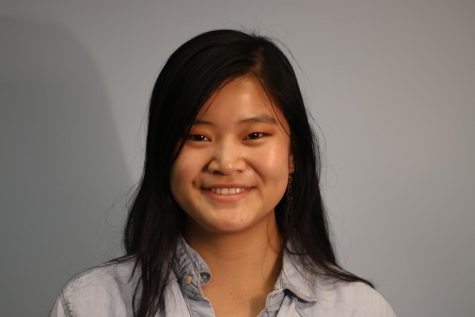Zhu: Sacrificing personal identity for the sake of filial piety
November 9, 2018
With the holidays coming up fast, suddenly more and more questions arise regarding identity and how to define that outside of the home. One of the most significant is how to bridge the LGBT identity and the Asian-American culture when going home this season.
Most identity crises in Asian-American households come from our understanding of filial piety, or the sense of duty and obligation we have to our parents that lies at the very core of the Asian identity. Although thinking deeply about this isn’t something that comes up too often in everyday life, it has to be confronted in order to bridge personal and familial identity.
Personality and family values are almost always in conflict in Asian-American households. The problem is only exacerbated by throwing sexuality into the picture. Filial piety in second-generation immigrants creates a pressure to conform to parental expectations while living in an American society that encourages personal expression, which only leads to friction between the two. This forces a choice between one and the other but choosing one over the other is counterproductive and leads to unhealthy outcomes.
Growing up under Asian parents also means growing up with the understanding that children are essentially extensions of their parents. This expectation comes from many factors, from the sacrifice that first-generation immigrants made to come to a different country and from the sacrifices they continued to make in the hopes that their children would lead better lives. This story is common enough but develops a guilt complex in second-generation immigrants to agree to concede parts of their personality and identity in favor of upholding family values. In doing so, second-generation immigrants become distanced from the culture they live in and can grow resentful of their families because they feel pressure to hide who they are.
While this is not to say that American values are necessarily wrong, part of the issue lies with how overbearing American culture is in telling people to be themselves. The Western idea of self-identification is almost purely based off individualism, which is simply not applicable to most Eastern cultures. For almost all Asian-Americans, a significant part of your identity is your family and their values, and trying to let go of that isolates us from an essential part of our culture.
Having said all of this, it becomes significantly worse when sexuality is factored in. Not only is the American LGBT community aggressively individual in its understanding of the self, many LGBT youth in America experience alienation and subsequent separation from their families, which can leave Asian-Americans cut off from a significant part of their own identity. This is not a condemnation of how LGBT youth in the US express themselves, but to point out that this experience is different for people from different backgrounds, and that being LGBT does not often lend itself to the conservative values of Asian households.
Not only is being LGBT often seen as immoral, coming out means reflecting that immorality upon your parents and family, which is seen as a sign of disrespect. To most Asian households, it seems ungrateful that despite the fact that your parents sacrificed so much for you, you are unwilling to sacrifice this part of your identity for them.
Bridging the gap between familial and personal identity is often difficult enough for Asian-Americans, but adding in the LGBT identity can result in internalized homophobia and a lack of self-acceptance. Although it seems trite, one way out is to take aspects of both cultures, and trying to balance self-acceptance with fulfilling your duty to your family. This may mean not coming out until later in life, or maybe not coming out at all to your parents. However, this is an issue we have to face instead of choosing one way or another and losing an important part of our lives.
Duty is duty, but it does not have to mean sacrificing your identity to maintain the respectability of the family.
Caroline Zhu is a first-year computer science and economics major with a deep and abiding love for Shakespeare. She is currently trapped indefinitely within a block of ice due to the combination of a southern Californian constitution and Cleveland’s cold weather.



